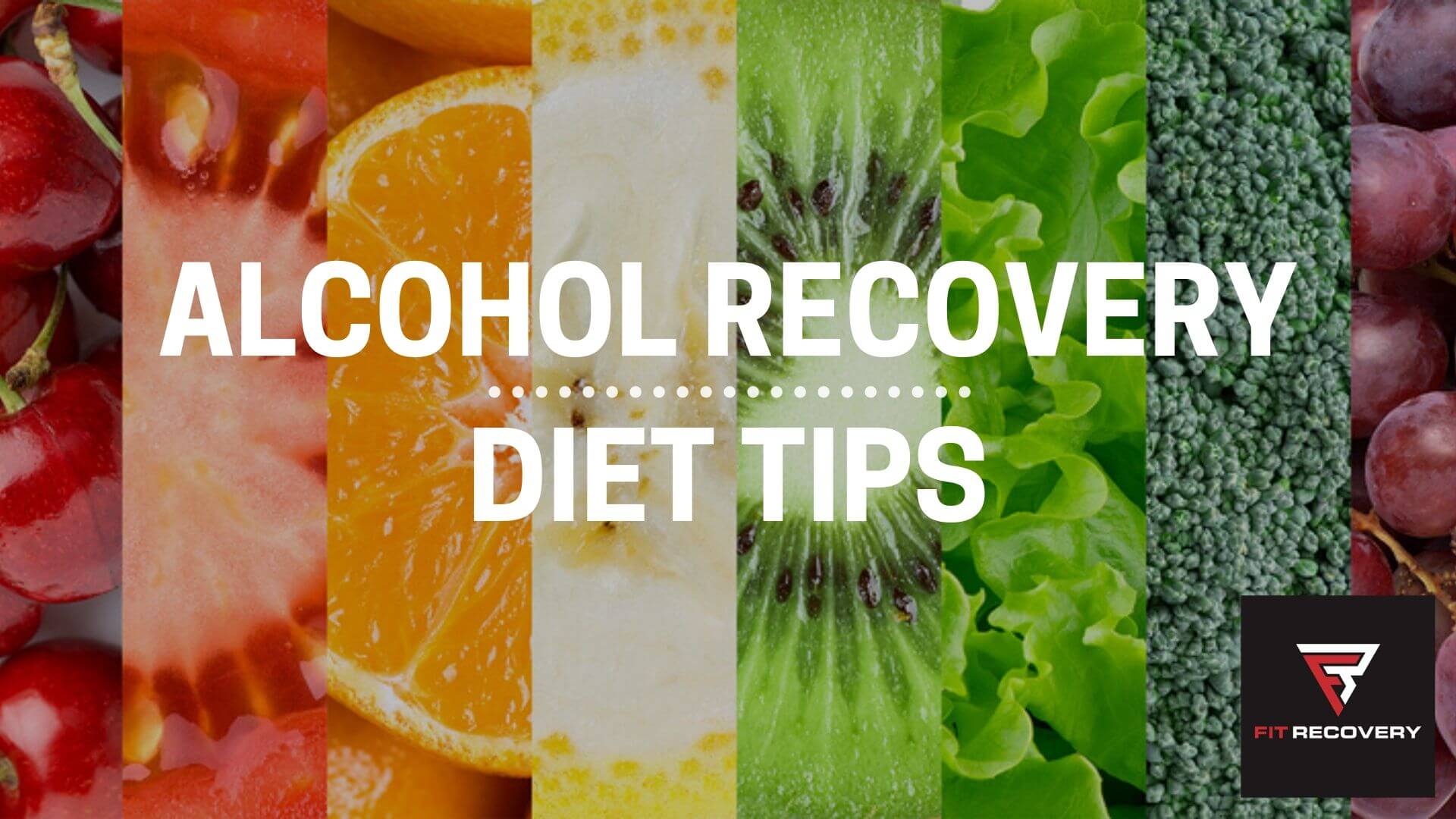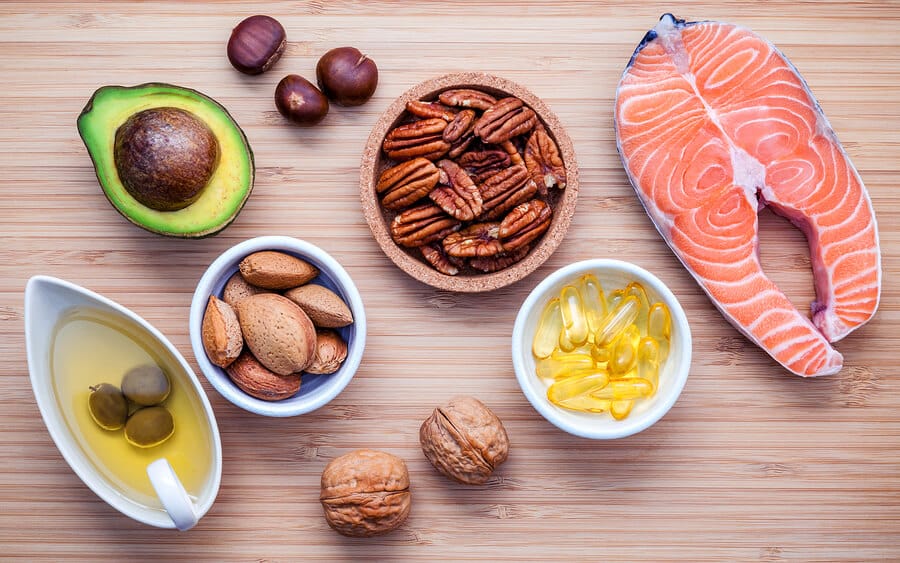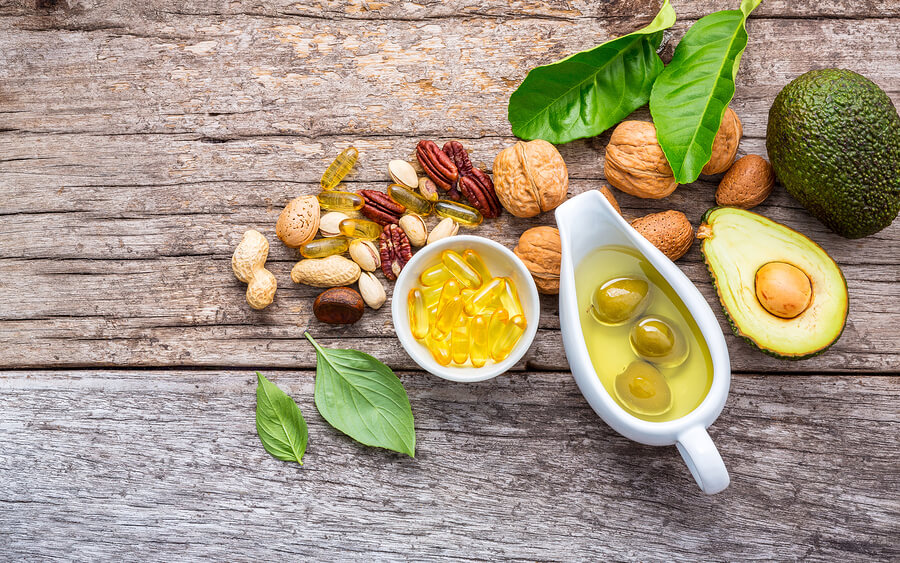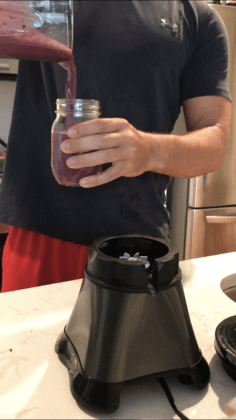
Along with supplementation, designing your ideal diet is a major pillar of physical recovery from alcohol addiction.
Some trial and error is necessary with diet because everyone is biochemically different. After coaching many people through the process of alcohol recovery, I’ve made two conclusions about diet:
- Genetics/ancestry help determine one’s perfect diet
- Food sensitivities are strikingly common
However, there are some basic guidelines that everyone who quits drinking can follow to maximize their sense of well-being.
In this article, I will discuss my three biggest tips for eating during alcohol recovery.
How Alcoholism Contributes to Poor Nutrition
According to the National Institute on Alcohol Abuse and Alcoholism, malnourishment in alcoholics can be caused by either:
- Not consuming enough essential nutrients like carbs, protein and vitamins.
- Alcohol’s role in preventing the body from absorbing or digesting nutrients properly.
Generally, alcoholics do not consume a balanced diet and alcohol’s high-calorie, toxic makeup easily leads to malnutrition and potentially anemia.
But that’s just the beginning. Check out these other ways alcohol causes nutrient deficiency.
The Importance of Proper Nutrition in Alcohol Recovery
It’s imperative to correct your body’s imbalance during recovery through nutrition. Giving your body the proper nutrients, and therefore energy it needs helps with mental, physical and emotional improvements.
When you start feeling good, it’s much easier to have a more positive outlook during the recovery process.
What is the Best Diet for a Recovering Alcoholic?
There is no “one size fits all” diet for recovering alcoholics. But if you follow some basic principles outlined in this article, I’m confident that you’ll find it easier to quit drinking and stay quit!
If you follow the so-called “standard American diet,” you’ll probably have to make some major changes. The good news is that these changes become easy with time, and your body and brain will both thank you for it!
Most people who try to change their diets fail miserably. This is because neural patterns are hard to break, especially when they involve a chemical dependency on sugar or junk food additives.
(Isn’t it strange that people who can’t stop eating muffins sometimes look down on people who can’t stop drinking wine?)
But why is it so freaking difficult to make diet changes that look easy on paper?
You already know that it’s impossible to succeed in quitting drinking if your only new thought process is “don’t drink.” The same basic truth holds for diet. You’ll never quit eating bad foods if you don’t choose viable (and delicious) alternatives.
The best strategy for any lifestyle change is to substitute something NEW AND EXCITING for the old.
Diet changes are exciting. Unlike fad diet programs, simple food substitutions can PERMANENTLY transform your health, mood, and physique – without any need to count your calories.
Viewed through this lens, designing your ideal diet will be a creative and fun process!!
Tip 1 – Cut Sugar And Flour Products
To feel your best after quitting drinking, you’ll want to completely eliminate foods made with sugar or flour.
Juices and sodas account for most of the sugar consumed in the modern diet. These can be replaced with low-sugar kombuchas, unsweetened iced tea, or sparkling waters with natural flavors. As you feel more stable and watch the pounds shed from your mid-section, you’ll stop missing sugary beverages forever.
You can replace flour products with “slow carbs” – i.e., foods higher in complex carbohydrates that digest slower, providing longer-lasting energy, curbing cravings, and reducing insulin spikes.
Slow carbohydrates tend to come from a farm rather than a factory.
Sweet potatoes, brown rice, beans, lentils, yucca, and oats are great examples of slow carbs.
I used to eat a lot of whole wheat bread (the worst offender), pasta, and cereal. Ever since I started eating meals consisting of whole foods, I’ve felt much better and become leaner.
There are some notable gray areas here. Sprouted bread – which is not made with flour, and which is typically found in the “health-food freezer” section of grocery stores – keeps me satiated for hours, and never causes bloating or weight gain. By contrast, regular bread always makes me feel tired, hungry, and bloated within an hour!
Why is this the case? Sprouting grains drastically reduces their starch content and increases their nutrient density. I’ve also noticed that I respond well to homemade sourdough bread, which contains enzymes that pre-digest much of the starch.
Extra tip: 1-5 grams of L-Glutamine powder placed under the tongue can help you defeat random sugar cravings. It also extinguishes cravings for alcohol, which is itself a highly refined sugar.
I’ve had private clients who emerged victorious over sugar dependence with the help of stevia powder and a bag of L-Glutamine in their pockets.
Tip 2 – Eat More Good Fats
While conquering sugar dependence tends to be the most difficult task for ex-drinkers, increasing fat intake is difficult for a different reason.
Most Americans have been conditioned since childhood to avoid eating fat – or at the very least, to feel guilty about it.
This is ridiculous! Our brain cells are composed of healthy fats. Numerous feel-good hormones, including testosterone, seize upon fats as their primary building blocks.
This conditioning is unconscious. I’ve had clients who intellectually grasp the need for good fats. But at the grocery store, they instinctively opt for “low fat yogurts” (often filled with sugar) and cut off the most marbled parts of their ribeyes.
When I’m consistently eating a lot of fat from whole food sources, my sense of well-being soars.
Avocados, olive oil, nuts, salmon, and grass-fed beef are my personal favorite sources of good fats. (Be sure to check out the Kitchenistic review of “avocado savers.”) People who eat a lot of these foods every day rarely have cravings for carbs and junk.
Last year, my dad asked me for a simple strategy to lose weight without dieting strictly. I told him to cut out processed carbs (sugar and flour) and eat more good fats. He’s lost 25 pounds and has been in a great mood all year!
Extra Tip: When cooking with healthy oils, it’s important to avoid heating them beyond their smoke point. This damages the structure of the fats, diluting their health value and in some cases turning them into carcinogens. This is why deep-fried potato chips made with avocado or coconut oil are still not healthy.
When pan-searing meat at high temperatures, I now use grass-fed ghee because it has a relatively high smoke point.
Tip 3 – Eat More Micronutrients
As you may already know, specific micronutrients can be consumed in supplement form to drastically enhance alcohol recovery and achieve physical optimization. But it’s also important to pack our diet with these natural compounds!
Micronutrients include vitamins, minerals, antioxidants, and plant-based compounds like flavonoids and polyphenols.
Eating plenty of whole foods is a sure-fire way to increase your micronutrient intake. Processed foods, by definition, strip micronutrients from foods. This is why mass-produced breads and cereals are “enriched” with a few basic vitamins, which don’t even begin to make up for the opportunity costs of eating these foods.
Type any fruit or vegetable into Google followed by “superfood,” and you’ll find an article extolling its benefits. Instead of obsessing about which produce is the trendy superfood of the week, I eat whole foods and make a smoothie every morning.
Here’s a picture of my smoothie from this morning:
Ingredients: Unsweetened Coconut Milk, Banana, 1/2 Cup Frozen Wild Blueberries, 100% Beet Powder (Organic), Organic Greens, Maca Powder. If I’m feeling ambitious, I’ll add some frozen broccoli sprouts in as well.
I prefer to use coconut milk instead of regular milk because it contains no sugar; milk contains a hefty dose of lactose. While I do not have any sensitivity to dairy, I’ve noticed that drinking lots of milk causes me to gain weight. For this reason, I do use organic milk during periods in which I’m trying to gain muscle and strength.
This section would be incomplete if I didn’t mention that I’m a huge fan of organ meats. Our ancestors instinctively knew that organ meats have more nutrient density than the popular cuts that we eat today. I eat grass-fed beef liver jerky or bison liver sautéed with onions.
Organ meats, known to contain more micronutrients than any vegetable, give me an energy rush and euphoria! I may have to check back into rehab and tell them that I’ve been getting high on liver.
What foods help you get sober?
To help you visualize these tips in action, I’ve created a partial list of foods below based on my own experience recovering from alcoholism and staying sober. You may see some things that you have never heard of. They are likely brand names that you can easily find in stores or on Google.
After I quit drinking and started optimizing my lifestyle, I replaced some common foods with MUCH healthier alternatives that helped me feel healthier and more stable in a matter of days:
Diet SodaZevia / Low Sugar Kombucha / La Croix / Waterloo / Unsweetened TeaJunk SnacksEpic Beef BitesCoffee With Cream And SugarCoffee With Unsweetened Coconut Milk And MonkfruitFrench FriesBaked Yam Wedges / Air-Popped Sweet PotatoesCorn FlakesWhole Oat Parfait With Berries / Chia Seed PuddingIce CreamFresh Berries With Organic Mascarpone CheeseMcDonald’s HamburgerBison Burger On Ezekial Sprouted English MuffinFrozen Hot PocketScrambled Eggs And A BananaFish Sticks And FriesSalmon And LentilsOrange JuiceMorning SmoothieCereal With Skim MilkGrass-Fed Ribeye And EggsBagel With Cream CheeseToasted Homemade Sourdough With Coconut Oil, Stevia, And CinnamonFrozen Creamed SpinachFlash-Frozen Greens Sautéed In Extra-Virgin Olive Oil
This list is totally subjective and based on my preferences. You don’t need to memorize all of my food substitutions as long as you notice a simple rule: Nearly everything I cut out came from a factory, while everything I subbed in was SUPER fresh.
The sole exception is sprouted grain bread. My favorite brand is Food For Life (Ezekial), which requires toasting for best taste. Epic Beef bites are packaged, but they are simply dried grass-fed beef with sea salt. I prefer their beef liver version.
I should note that many people have some degree of gluten sensitivity. Dairy sensitivity is pervasive as well. If you make diet substitutions and still feel sub-par, eliminate gluten or dairy for 30 days to determine whether you feel better without them.
As with everything else on this website, what I’ve provided here is simply a blueprint. You’re the only person who can take action to change your life for the better!
Can your body heal if you stop drinking?
The first piece of good news here is that the human body has a remarkable ability to heal from prolonged alcohol consumption. Unless you’ve been diagnosed with severe brain damage (likely due to vitamin B1 deficiency) or alcoholic cirrhosis, the odds of healing your brain-body system are in your favor.
But it’s crucial to act now to avoid inflicting permanent damage on your brain or liver. When I was in detox for alcohol withdrawal, I met several people with cirrhosis. It’s a scary disease, and although treatments are getting better, a liver transplant is often required.
Not only can your body heal if you stop drinking, but you’ll actually increase your chance of staying alcohol-free if you focus on proactively regaining your health through diet, natural supplementation, and lifestyle strategies. Too many people focus solely on psychological healing, only to be brought down later by biochemical imbalances caused by alcohol that can linger for months or years.
Be sure to check out my articles on alcohol detox supplements and body repair after quitting drinking if you’re new to this subject!
Can recovering alcoholics eat food cooked with wine?
This is a common question among people who have recently quit drinking, and the answer is twofold.
First, cooking food in wine (or any other type of liquor) tends to burn off all of the alcohol. Therefore, there is little risk of increasing blood alcohol content due to consuming food cooked in wine.
However, for some people in early recovery, the flavor of liquor can result in “euphoric recall” and thereby serve as a sensory trigger for alcohol cravings that could potentially result in a relapse.
For this reason, most addiction counselors warn against ever consuming food cooked in any kind of alcohol. I myself avoided such foods until I was about one year alcohol-free, at which point I had already begun to regard alcohol as a worthless toxin rather than a forbidden fruit.
Because I have fully reframed alcohol as a poison, I no longer obsess over the existence of trace amounts of alcohol (or alcoholic flavors) in gourmet dishes.
And Now, The Really Good News!
I hope you’ve stuck around to hear the good news, because it is REALLY good.
For as long as I can remember now, I’ve set aside one day per week to eat whatever I want.
That includes biscuits with jam and butter, tagliatelle bolognese, fried chicken, and chocolate cake. After working out and eating well all week, I deserve it. Studies show that one cheat day per week may actually boost metabolism. (source)
Even if those studies turn out to be false, I’ll still take cheat days. I’ve gotten away with them easily, despite weighing over 250 pounds before I quit drinking. My goal is to live life fully, not to feel deprived and have a 6-pack at all times. Chocolate cake tastes a lot better when you only eat it once per week.
I don’t crave endless chocolate cakes once I have a bite. Usually, a bite is all I need.
Thanks to exercise, supplementation, and CBD oil, I’ve continually rewired my brain away from the “addictive personality” that was so evident during my drinking years – and which so many addiction counselors once framed as a permanent aspect of my existence.
Further Information
Using trial and error to discover your ideal alcohol recovery diet is a huge step in the right direction.
But it’s just one of a series of improvements toward rewiring your brain and improving your quality of life.
In order to really conquer addiction forever, there are more pieces of the puzzle that you need to get right:
- Supplementation
- Relapse prevention
- Diet improvements
- Exercise regimen
- Mental strategies
- Maximizing Support
- Medications (for some people)
For more information about how to create substitutions for alcohol in early recovery, check out my podcast episode below!
If you’re on a mission to beat alcohol forever, be sure to resolve your all of your Missing Links in the Hierarchy of Alcohol Recovery.
If you have any questions about alcohol recovery diets, feel free to leave them in the comment box below.
Authors
-
Chris Scott founded Fit Recovery in 2014 to help people from around the world dominate alcohol dependence and rebuild their lives from scratch. A former investment banker, he recovered from alcohol dependence using cutting-edge methods that integrate nutrition, physiology, and behavioral change. Today, Chris is an Alcohol Recovery Coach and the creator of an online course called Total Alcohol Recovery 2.0.
View all posts -
Dr. Rebeca Eriksen is the Nutritional Consultant for Fit Recovery. She has a PhD in Nutritional Genetics from Imperial College London, and over ten years of clinical experience designing custom nutritional repair regimens for patients recovering from alcohol addiction. In addition to her work at the exclusive Executive Health clinic in Marbella, Spain, she helps to keep Fit Recovery up to date with emerging research.
View all posts












I took this course and loved it. Just rereading some of the blogs to refresh my memory and for a little inspiration mid-day.
Awesome Diane, thanks for the feedback!!
Any views or advice on starting the NSNG nutrition plan as a lifestyle change to go with all this?
Chris, I’m happy that you’ve found your purpose! Your videos are engaging. Your website is loaded with helpful info. My favorite section is “Supplements” – you haven’t simply listed them (thank you!), you’ve provided layers and layers of the why it’s important and how it works. Intriguing!
Please, will you share your honest opinion regarding The Sinclair Method? I’ve started the program/process. Positive reinforcement. Complete honesty.
Hope you find time to reply. Thank you!
Hi Stella, thank you for the kind words! I’m a fan of Sinclair for some people, please check out my article on pharmacological extinction here.
Keep up the great work!
Hi Chris! Recently discovered you on YouTube, I have listened to many of your videos and this far agree with everything you have said…yes everything!! I ordered 3 bottles of CBDPure today w/discount and free shipping. For now, I wanted to say thank you and God Bless. My story is different than yours, that is for another day. Thank you!!
Wonderful to hear this Diane! Enjoy the CBD and best of luck to you!!
Thank you so very much Chris and congratulations on all your accurate, amazing accomplishments and information!!
You’re very welcome Diane! Thank you for the kind words!